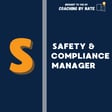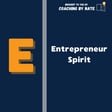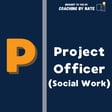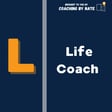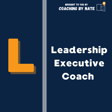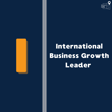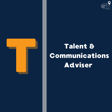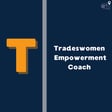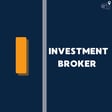Become a Creator today!Start creating today - Share your story with the world!
Start for free
00:00:00
00:00:01

VP Global HR - Tim's Story | Opera Singer Turned Corporate Strategist
In this episode of A-Z Jobs, Nathan sits down with Tim, whose career path is anything but ordinary. Starting as an opera singer, Tim transitioned into HR, logistics, and even set up HR functions in India—all while embracing every opportunity that came his way. He shares invaluable insights on transferable skills, the power of mentorship, and why kindness is a non-negotiable in leadership. Whether you’re early in your career or navigating a pivot, Tim’s story proves that curiosity and courage can take you anywhere.
Transcript
Intro
Tim's Early Career Journey
00:00:33
Nate
Tim, thank you for joining us.
00:00:35
Tim
no worries great to see you nathan
00:00:38
Nate
So let's dive in. Tell me about your career and what inspired you to pursue it.
00:00:42
Tim
Oh, wow. That's a really long question. um So I actually have had, i would say, two careers. My first career I started off, I actually studied music and I did opera singing.
00:00:54
Tim
um So I did that for a few years and i I did some shows and some touring and then I needed to earn some money because theatre doesn't pay that well.
00:01:06
Tim
And my parents... for the good or bad, installed values in me that I needed to earn money. So I started a ah casual job at in a supermarket on the checkout, not thinking anything was gonna happen.
00:01:20
Tim
um And somehow I ended up staying at the company for 17 years because I started off casually im on a checkout. They then asked me to do numerous jobs within the store.
00:01:32
Tim
um And I moved into so like a store management kind of a role. I kind of liked the money. I was like, oh, this is kind of good. um I was able to do some singing as well during that time.
Transitioning into HR and Setting Up in India
00:01:42
Tim
So it was good because I kind of had a bit of both ah careers as I did that.
00:01:46
Tim
um I then, um during that time, I also um went overseas. So I worked for a year um backpacking, as all Australians kind of tend to do.
00:01:57
Tim
um So I kind of got that experience. And when I came back, um They moved me into a role, they had this job in training and I thought, oh, that sounds all right. And i kind of like training because training is, it's theatrical as well because you're standing in front of a group of people, you're almost trying to um entertain them for the day as you train them and in parts of knowledge.
00:02:06
Nate
you
00:02:16
Tim
so That's how I kind of got into HR, which was, you know, the bulk of my career was i did try i started in training and I was training systems and things like that. And then I got moved on to a bigger project for training. The company I was with was launching a new product. So um that was great because I got to travel around Australia and I kind of liked the traveling and the training.
00:02:36
Tim
um And I was learning a lot and that's kind of where I started and I did my master's actually in learning and development at the same time because I was really interested in, I've always been interested in humans and how humans work and operate. I find it fascinating.
00:02:50
Tim
um And then I moved into, I'm trying to remember now, and a national role. So um I moved into a role where I was looking after all of training and development for a supermarket, the supermarket division at this company.
00:03:05
Tim
Then a very interesting thing happened. and We had a new CHRO and she said to me, i don't think the structure's right in the learning department. She said, if you if you were me, what would you do with this department?
00:03:19
Tim
So I did a new structure and I actually took myself out of the structure because there was like too many managers in the structure. And she I went back to her and she said, you're not in this structure.
00:03:29
Tim
I said, no. i said, but you'll find something for me. I'd been doing this job for about five years and i was like, I need something different. so I said to her, you'll find something for me. And she said, okay. Three days later, she calls me back into her office and says, I found something.
00:03:42
Tim
I said, great. And she said, um how would you like to go to India? And I kind of looked at her and went, what are you talking about? We didn't have anything in India at that point time. She goes, up well, we're setting something up.
00:03:54
Tim
And I kind of went, um she goes, just go for a trip and see if you'd like it. I went, what's the job? She said oh, we need someone to set up HR. I said, okay. So I went to India the first time and was a little bit confronted by everything. it ah I love India, but your first trip there is always very confronting and very, wow, this is an amazing country.
00:04:18
Tim
And I came back and she said to me, so what do you think? And in my mind, i was scared, but I also thought to myself, I should do this. And if I did didn't do this and I saw somebody else take the job, I probably would have been you know a bit regretful. So I said, okay, I'll do it. So I i moved to India.
00:04:41
Tim
spent five years in India, but the first two, ah two and a half-ish were in HR, setting up the HR function. And then one day we were looking for a new head of logistics and we couldn't find one.
00:04:53
Tim
And I was very fortunate and we had an an awesome general manager And she said to me, i think you should do it. And I looked her and said, how can I do logistics? I'm just a HR person.
00:05:05
Tim
And she said to me, Tim, you're really good at process and you're really good at teams. And she said, logistics is about process and having the right teams in place.
Expanding Career in Hong Kong and Return to HR
00:05:14
Tim
um So went, well, if you have...
00:05:18
Tim
confidence in me then let's go so i took over logistics and i built sheds and warehouses across india and i had some great support and some great help um which was which is the key to that role for me but it was great for me to move into something different and and to take the skills i'd learned in hr and put them into a business context they then said to me okay how would you like to go to hong kong was like
00:05:27
Nate
Thank you.
00:05:46
Tim
Why not? And so that's how I ended up in Hong Kong. And i I did sourcing there. So, you know, I was part of the sourcing office, the ah you know, and operations for sourcing um in Hong Kong.
00:05:59
Tim
So that's kind of how I moved into this next career, which was around sourcing and and doing sourcing. And then ah strange kind of thing happened, this the company i was working for went through a lot of change.
00:06:09
Tim
And there was a lot of questions around, what are we going to do with Tim? Is he going to stay in Hong Kong? Is he going to go to back to Australia? By that time, I'd met my now husband. So it wasn't just me. I'd been by myself for basically the whole of my career. And so now I had to think about somebody else.
00:06:24
Tim
So I was at a dinner party and the person sitting beside me um was a yeah VP of HR and we were talking and he said, oh, we're looking for someone like you. And I was like, oh, okay.
00:06:36
Tim
Let's have a chat. So ended up chatting to him. um And ah that was when I left that company and I moved to another company. um And I started there as process. So i was doing process improvement for them before I moved um into quality.
00:06:51
Tim
So now I'm kind of doing all these different roles. And then from quality, i decided that it wasn't the right role for me and that I wanted to go back to HR. My my goal had always been to go back to HR.
00:07:06
Tim
And so this seemed to be the right point in my career to go back to HR. So I moved back into a role um in HR and eventually I um ended up being the VP of HR there.
Balancing Singing with HR and Transferable Skills
00:07:19
Tim
That's kind of the brief version
00:07:23
Nate
fantastic. It really does like we talk a lot about transferable skills and and your career journey really highlights the fact that once you've got that that core skill set, you really can can apply it to many different industries and countries as well, which is amazing.
00:07:37
Tim
Yep.
00:07:40
Tim
yeah
00:07:40
Nate
um My first question that comes to mind is how did you, opera singer and then and warehouses and corporate and sourcing, how, look, I've had the pleasure of seeing you sing at staff events, but other than singing at staff events, how how do you balance, how do you find that fulfillment? Like if if singing was the passion and now you're in this different world, how do you feel fulfilled?
00:08:05
Tim
I think it's an interesting question. I i so i didn't do singing for quite a while and and I missed it. And, um you know, i did events. i I mean, you know, at annual dinners and stuff, I would sing.
00:08:19
Tim
I did friends' weddings. um I've recently started doing lessons again and I think you find fulfillment, you know, as
00:08:25
Nate
Thank you.
00:08:29
Tim
When you study something, it actually does become a bit of a chore. When you have to make money from it it it, is actually difficult. And I've actually found it really nice to go back and do it as almost like a hobby and a passion um because it doesn't matter as much if you crack or it doesn't sound beautiful um and you take more risks with it because you're like, I'm not making money out of this. This is just for me to have fun.
00:08:52
Tim
So I think that's, I didn't balance it well for a long time, but now I'm starting to get that balance back in. And I think working in HR is, you know, it it is all about, you know, working with people. And i think, you know, a a lot of singing is trying to connect. to Singing is ah an art form where you try to connect with people and make people feel something.
00:09:15
Tim
And think HR is also about connecting with people. So it's not too far off from singing for me it's it's just a different form of interacting with people
00:09:26
Nate
With that connection. Yeah. And what about, so you've mentioned a little bit of your education. I'll leave this quite broad.
00:09:33
Tim
yep yeah yeah
00:09:34
Nate
So if we're talking about HR, what, what education did you do for the HR component, I suppose, of getting in there?
00:09:42
Tim
The education I did was my master's. So I did my master's in Sydney.
00:09:44
Nate
Yep.
00:09:47
Tim
It was more because i never thought I would have a master's. So i never considered myself to be overly smart. um I was always very street smart. So I was very practical and very, I think things through very step by step and very practically. And I think for me, it was more a personal goal to have a master's that I wanted to do because I didn't think I could do it.
00:10:12
Tim
It wasn't necessarily for the job, it helped. I also think the good thing, and this is you know, something that I really believe in is, it was easier to do my master's after working.
00:10:24
Tim
I see a lot of people go straight from a degree to a master's um and struggle. Whereas I waited i six or seven years after seven or eight years, probably before I did it. data And that that industry experience really made things a lot more practical for me. So I was really happy that I did it later in my career because I could apply what I'd learned in the workplace to a lot of the work that I had to do in my uni.
00:10:50
Tim
um and my master's and I found that much more beneficial than trying to struggle through with no practical experience in what I was doing.
Mentorship and Career Development
00:10:57
Tim
So most of my experience is from doing the job.
00:11:01
Tim
It wasn't necessarily from university which is why i always talk to bit more about what can you do not what do you have on a piece of paper because a piece of paper means theoretically you can do something but practically can you actually do it.
00:11:16
Nate
Can you do it? Yeah. I agree completely. I did my master's in HR. I worked for a few years, so I finished my my undergrad, worked for a few years, then did my master's, but in hindsight,
00:11:28
Nate
I don't know. It's hard to say because I did my master's and I got i basically jumped from talent an acquisition to a HR manager role straight away.
00:11:29
Tim
yeah
00:11:35
Nate
So I fast tracked my career quite a lot.
00:11:35
Tim
Yeah.
00:11:38
Nate
But at the same time, now that I've worked in larger businesses, I wish I could redo my master's again because I'd get so much more, so much more out of it rather than doing it so early in my career.
00:11:38
Tim
Yeah.
00:11:46
Tim
Yeah, absolutely, absolutely.
00:11:49
Nate
Yeah. You've spoken about the connection. so is that your favorite part of the HR career or what what would you say is the best part of of working in a HR sort of environment or industry?
00:12:03
Tim
My absolute favorite part is helping people develop their careers. So I think it's fantastic to watch people grow um and to watch people do things they didn't think they were capable of.
00:12:19
Tim
I think, you know, throughout my career, I had wonderful people who believed in me and saw things that I didn't see, which but gave me the confidence to do things like moving into logistics. I would never have done that unless the general manager at the time had the confidence and ability in me to do it. I would never have moved to Hong Kong, um but a different general manager had confidence in me that I could do it.
00:12:42
Tim
So i think for me, it's giving back a lot of that. It's it's letting people know, hey, here's, i think of the best story I can tell you about this is I was in India and I put a a gentleman into ah into a training role um as a training officer, and he never thought he could do that. and I'm like, you're great, you can do it. And he did it.
00:13:04
Tim
And we I had to take him to another city to train. um And it was really strange because the policy at the time, i'm not saying this is a good policy, I'm just saying this was the policy at the time.
00:13:17
Tim
He had to travel by train and I was allowed to fly. And I said to him, no, we're not doing that. You're just flying. Okay, just come on the plane with me. Anyway, we get on the plane and i had the, he'd never been on a plane. I didn't know this.
00:13:30
Tim
and But I said to him, you have the window, it's okay. And he was staring outside the plane in awe as we took off. And I ah kind of said, have you been on a plane before? He said, I've never been on a plane.
00:13:41
Tim
I went, wow. And he said, I did an assignment in university where I learned how planes take off, but I've never experienced it. He goes, this is amazing. And I just sat there going, Like that sort of stuff.
00:13:53
Nate
Yeah.
00:13:55
Tim
Like, I don't know that's not directly HR, but it just, I love that. And he was the best person because um he just worked so hard. um And, you know, he never had anyone that believed in him that he could do it, you know, which is what I was doing for him. and to me, it's natural, but it's not natural to everybody.
00:14:15
Tim
So it's things like that that i I just love. And it's not, I do like, you know, working with senior level people because, you know, it's it's a different kind of experience. I like giving them feedback. I like kind of telling them, hey, maybe we should try it this way. But I really prefer working with people who are at the beginning or middle of their career and helping to guide and develop them um to be better leaders and better better employees. so
00:14:41
Nate
I couldn't agree more with you. I absolutely agree. That's why I'm doing this. That's why I'm doing the coaching.
00:14:47
Tim
Yeah, absolutely.
00:14:48
Nate
Even this week, I had ah i had a client, she's she's from Taiwan, and I've been working with her for three, probably about six months now. Her goal was to get a job, Moreton Bay Island in Australia, in hospitality.
00:15:02
Nate
And literally this week, she messaged me. I messaged her, how was your restart? I haven't haven't heard from you. And she messaged saying, oh, I've just been working on Moreton Bay in Australia. I'm like, ah So it's amazing to hear these success stories and it really does, there's a lot of fulfillment in in that.
00:15:12
Tim
wow.
00:15:19
Tim
Correct.
00:15:19
Nate
um You mentioned people believing in you, but were was that was that like a formal or but casual mentoring relationship or that was just a manager-employee relationship?
00:15:31
Nate
Did you have any mentors at all?
00:15:33
Tim
um I never had formal mentors, but there's there's still two two or three people in my life that I know I can go to. And back then there was, you know, there was there was about three or four people that I i could have open and discussions with and talk to them with.
00:15:52
Tim
um And, you know, I think that is really important that you have people that you respect and trust that can give you the right advice. Early on in my career, I foolishly took advice from somebody who um I shouldn't have when I look back. But at the time, I was like, she was telling me, yes, this is a good salary. And I'm like,
00:16:15
Tim
in my gut, I was like, it doesn't sound like a good salary, but okay, you're telling me. And then I learned like a few months later, it wasn't a good salary, but, you know, she kind of made me think it was. And so that's when I kind of went, you need to develop these relationships when you, where you trust somebody. And then, you know, later on in my career, just as the juxtaposition of that, I was doing another salary negotiation and the, you know, one of my mentors was like, Tim, that's a really bad salary. You need to go in and ask for this, this, and this. And I was like,
00:16:45
Tim
Okay, that's how I do it. Like, you know, you don't don't accept just, you know, what what's being told. And so I think that's a really key is for you to decide who those key people are in your life. There's a lot of mentoring programs where get signed a mentor, which can work well, it can work.
00:17:02
Tim
um But sometimes it's better if you can identify somebody that you align with their values, you align with their leadership style, you align with who they are, and you think to yourself, that's somebody that I want to understand more from um and build that relationship with them.
00:17:20
Nate
Yeah, yeah, definitely. So it's not grabbing the first mentor that that appears. it's It's getting to
00:17:26
Tim
Correct.
Handling Redundancies with Empathy
00:17:26
Nate
know them, getting to know the the the trust.
00:17:30
Nate
We did a lot trust in that.
00:17:31
Tim
And i think I think over time your needs change.
00:17:32
Nate
Building trust.
00:17:33
Tim
So my needs as a 20-year-old are very different to my needs today as a, let's say, 50-year-old. um it's it's It's different what I'm looking for out of somebody um to mentor. and And I actually now find i learn a lot more from people younger than me.
00:17:52
Tim
um You know, and which people go, how can you learn something from someone? But there's a lot to learn from everybody. And so I find that, you know, there's people younger than me that I now go, wow, that person is a great mentor to me because I'm learning all of these different things that I that i didn't know or understand before.
00:18:11
Nate
Absolutely. Even in more, i was just, conversation came to mind, I think even more casually, like ah in terms of ah when you're attending network events or ah functions, you know, a lot of people get quite nervous, but if you change the mindset of going in there learn, because every time you speak to someone, it opens new thoughts and new ideas.
00:18:31
Tim
yeah
00:18:32
Nate
So it's about going in and having having that mindset of learning from everyone. It's just amazing.
00:18:37
Tim
Correct.
00:18:39
Nate
So that's the good stuff. What about the bad stuff? what's what What's the most negative or the thing that you're like, oh, I don't want to go to work. I can't do this part of HR. Hmm.
00:18:51
Tim
um
00:18:54
Tim
I don't, I'm a really positive person. So i never and never necessarily go in and say, I can't do this part. I think the biggest, the hardest days for me were always around when you were doing redundancies.
Preparing for HR Promotions and Importance of Experience
00:19:07
Tim
So, you know, there was there was times when you have to let good people go. And that was always very, very difficult for me. I'm very empathetic. So i was always very concerned about the person. And, you know, I remember many, many years ago, you know, one of the first redundancies I did, i was so upset.
00:19:28
Tim
And the person being let go was almost comforting me because, you know, she could see how upset I was. And she was like, it's okay, don't worry, don't worry. And I'm like, No, i' like, I'm sorry, I'm sorry. And it doesn't get any easier. i think you just learn how to to manage the situation um better for yourself and for and for the person.
00:19:51
Tim
And I think they're always the hardest decisions that you have to make. um Yeah.
00:19:59
Nate
If someone was to say, Tim, I want to follow in your footsteps, I want to be in HR, how do I get there quickly, i want to be there as super fast, how would you say, what would you recommend that they could do?
00:20:11
Tim
Super fast. i It's so tricky because being super fast requires so many different things to line up for you, which aren't always in your control.
00:20:23
Tim
So, i mean, when I talk about people being promoted, I always talk about you have to have the skills and abilities to be able to do that job, number one. Number two, there has to be a position for you to go into to do that job.
00:20:37
Tim
And number three, there has to be a budget available to be able to fund you to be in that job. So... It's not always that you're not the right person to be promoted, it's just that maybe those three things aren't lining up.
00:20:51
Tim
But I think there's a lot of things you can do to be prepared. And I think that's where people let themselves down is, and I always say this to someone who who says to me, I should be promoted. So I say to them, okay, tell me one thing you did this week that made you a better person, that puts you ahead of everyone else to be promoted.
00:21:09
Tim
And people normally just look at me and go, ah nothing. Okay, what about in the last month? Tell me something. no And so people can't articulate what they've done to make themselves ready for that promotion. So I always say, find something every day, learn something every day, even if you spend five minutes and watch a YouTube video, something, anything that helps you to get towards your career goals.
00:21:35
Tim
And I think, you know, step back and go, what are your career goals? And what do you want? but also be flexible. The one thing that I did that I think helped my career was I did roles that nobody wanted to do, especially when I go back to my early days working in a supermarket. I worked in the systems office, I worked in the cash office, I stacked groceries um on the shelves and that kind of gave me this all-round experience that when they wanted somebody to move into like a you know management role, they were like, oh, Tim's done all these things.
00:22:05
Tim
um you know I was able to be a duty manager at night because I knew all these things.
00:22:06
Nate
Yeah.
00:22:09
Tim
And they were like, okay, you can do that. And I think that's the important thing is you know jump in and help other people where you can. you know if If you're in HR and you're not doing recruitment, ask, hey, can I sit in ah on an interview?
00:22:23
Tim
and understand how interviewing works. Or if you don't know about compensation, go and sit with the person who does compensation and say, hey, can you just explain how compensation works um a little bit just so I've got a little bit of a better idea?
00:22:37
Tim
So you can do all these things that aren't your job whilst you're doing a job that don't take up a lot of time, but actually give you skills to be able to jump in when somebody needs needs help. And you know also,
00:22:51
Tim
You know, the recruiters are away, they're off sick and interviews have to happen. Hey, I've done interviews. If you want, I can jump in today and carry, do those interviews for that person. So it's just for me, always being ahead of the curve, um making it clear to everybody what you can do, what you'd like to be able to do um and just getting in there and, you know, getting your hands dirty, as we call it, and and understanding all the different facets so that you are the one that is ready on the day that the promotion comes,
00:23:20
Tim
or that when, you know, if you want to change company, ah ah an opportunity, another company comes, you go, hey, here's all the things that I've done that I'm ready to move into this role.
HR's People-Centric Approach and Team Trust
00:23:30
Nate
Yeah, and when you're writing your resume as well, it's good it's good to track these things as you're going. So when it comes to selling yourself for the promotion, you've got a list of your achievements and not just not vague statements, but actual your actual metrics to to what you've achieved and how you've done it.
00:23:47
Nate
And I love as well that it mixes up your day. You're not just sitting at your desk doing the same thing.
00:23:51
Tim
Correct.
00:23:52
Nate
You're like, I'll go do that for a while now. I like it. I like it.
00:23:57
Tim
I never in HR, I never had the same day twice.
00:23:59
Tim
I don't think I ever did the same thing because ah i'm I'm like you, I don't like just sitting in an office. um You know, I i made myself You know, even in HR, I would learn about other parts of the business so that I understood, you know, how those parts of the business worked.
00:24:16
Tim
So that if you're having conversations with, let's say, the legal department, you actually know how it works and you actually know this is what they do and this is how they operate. And it's really important to to build trust and understand the personalities in HR.
00:24:31
Tim
So one of the ways that you can do that is by understanding their business. And I think even as a HR, you know, if you're trying to build your HR career, understanding people and understanding the people within your business and building relationships with those people, that's the number one thing that you kind of need to do so that that then also gives you opportunities to understand and do more.
00:24:54
Nate
Yeah, HR is one of those things where some companies just give it such a such an administrative role, like it's paperwork, just get the paperwork done. Whereas, you know, it is a people role more so than ah than a paperwork role.
00:25:05
Tim
Oh, absolutely. Yeah.
00:25:08
Nate
Everyone, not everyone, a lot of people can do the paperwork, but not a lot of people can do the the people side of it, which is which is a lot more challenging.
00:25:10
Tim
Yeah.
00:25:13
Tim
Yep. Absolutely.
00:25:16
Nate
And just thinking out loud, because I've seen, you know, yourself, like you encourage volunteering as well, not just so ah yourself, but the team.
00:25:24
Tim
Yeah.
00:25:25
Nate
i think that's another great way if you're working in a company where ah don't have the opportunity to go sit and meet with legal, but you might have a there might be a program where you can get involved in volunteering and look at some different options that get you out and ah meeting people through that avenue.
00:25:38
Tim
Yeah.
00:25:40
Tim
Absolutely. I think volunteering is a great one because it's normally a diverse group of people going where you you meet new people. I think any sort of social activities that your company does, um that's another way of getting out and and meeting people.
00:25:55
Tim
I think just saying, hey, do you want to go and have a coffee or go for lunch? That's, you know, another great way of, you know, make yourself... i read I'm reading a book that's called um Never Eat Alone, which is talks about, and you know, every meal you have, sit with someone different and learn something from them.
00:26:12
Tim
And so i think that's a great way to kind of gather people HR to build the trust. And I think that's one of the great things that, you know, the HR team um that we had, because Nathan and I worked together, full disclosure...
00:26:25
Tim
ah people trusted the team. So they trusted the team as a HR team. And that's so important in a company because a lot of companies, they don't trust HR. So nobody wants to eat lunch with you. Like, because if I tell HR, then it'll, you know, we'll all be in trouble.
00:26:40
Tim
um And it was never perfect, but I think there's that trust that gets built with people, which is so important.
00:26:47
Nate
Absolutely. All right. So you've mentioned a book. ah My next question is about resources. So not not necessarily formal training, but is there a what is there one book or one podcast or one habit, something that ah really and know guided you or something you keep going back to as a resource?
00:26:51
Tim
Yeah.
00:27:06
Tim
um I read lots of books, so and and I find parts of books that I gravitate to and and love. So I think about, um there's a book called Eat That Frog.
00:27:19
Tim
um um
00:27:20
Nate
Mm-hmm.
00:27:20
Tim
I can sometimes procrastinate. Eat That Frog is basically saying, if the worst thing you have to do in a day is eat a frog, eat the frog first. So that that that always sticks in my mind. I love biographies and autobiographies. I think reading about other people's lives is fascinating and you you get to see their journey and you get to understand where they made mistakes and what those mistakes did for them.
00:27:51
Tim
You get to understand where they did well and what those things did for them. um So I just encourage people to read ah wide variety of things. If you don't like reading, you can get abstracts of books these days online. So, you know, just Google for an abstract of a book that you think is important.
00:28:10
Tim
um I really love Pat. There's a ah gentleman called Patrick Leoncioni, think his name is. He writes a lot of books that are based in a fable kind of way, but they're about leadership um and they're about all different sorts of topics like team building, meetings, all different things.
00:28:28
Tim
um But it's a nice, easy style to read. And I think you've got to find the style that works for you. So if there's podcasts that you like, just listen to podcasts. I started doing that because we changed office and I had to try i used to work five minutes to work.
00:28:41
Tim
I had to take 45 minutes to work. So I started listening to things and it was just... fascinating. and And I didn't always listen to HR things. I listened to, you know, things about um there was a dam in Brazil that burst and they were blaming the company for it and the company wasn't taking responsibility. And you can learn lots from things like that as well. So I think it's just you being open to reading and understanding, sometimes saying, you know what, I don't like that.
00:29:09
Tim
I don't believe that, but that's their point of view. um And then forming your own thoughts around things from there.
Tim's Guiding Principles in HR and Conclusion
00:29:16
Nate
Yeah, I agree. i Like most people, it's hard to find the time to read. ah so i'm I'm a massive fan of audiobooks.
00:29:25
Tim
Yeah, absolutely.
00:29:25
Nate
um ah I might make a podcast, but to be honest, I don't listen to a lot of podcasts, but I do listen to a lot of audiobooks.
00:29:30
Tim
Yeah.
00:29:32
Nate
So even through like Spotify, have such a big database of audiobooks.
00:29:33
Tim
Yeah.
00:29:36
Tim
Yeah.
00:29:37
Nate
So once we get off this chat, I'm going to be looking up all those books and see if they're on Spotify so I can start making my way making my way through them too
00:29:44
Tim
yeah yeah
00:29:45
Nate
Fantastic. All right, just to wrap up, finally, is there do you have a favourite quote or a mantra or something that you that you repeat to yourself or something that just reminds you, that but grounds you?
00:29:58
Tim
There's a couple of things that come to mind for this one. So the first one is in a world where you can be anything, be kind. um I just think there is no reason for anyone to actually be nasty to anyone. I don't, somebody who also once said to me, no one comes to work to do a bad job.
00:30:17
Tim
Like, yes, people do a bad job, but they didn't set out in their day to do that.
00:30:18
Nate
Mm-hmm.
00:30:22
Tim
Something's happening. um and And I think that, you know, if we can all just be a little bit kinder, it makes the world a better place. And I i don't think there's, there's ways that you can still get your point across, you know, if there's something you have to say.
00:30:37
Tim
in a positive manner without being nasty. um So that's kind of my my first thing. i think the other thing for me is always putting myself in somebody else's shoes. I think empathy and really trying to understand what that person is going through is really important because you you don't know what's happened to them before, you know, something happened or something happened after. And I go both ways. If you see somebody who's really positive and friendly and you think, well, or they're a great leader,
00:31:07
Tim
put yourself in their shoes and go, hey, what did they do that I really like that maybe I could take on? um Then the second, you know, the other part to that is, you know, hr we do a lot of performance management.
00:31:18
Tim
So what is making this person not perform well? So what is it? Is it is it them? Is it their manager? Are they just not in the right job? But not just saying, oh, they're a bad performer.
00:31:31
Tim
But putting yourself in their shoes and really trying to understand what's going on here, that's the other thing that's really important, I think. So they're they're kind of the things, you know, be kind, put yourself in other people's shoes is kind of what I try to do.
00:31:44
Nate
Fantastic. Perfect way to wrap up. Thank you very much for your time, Tim.
00:31:48
Tim
No worries.
00:31:48
Nate
It's been great having a chat and I'll catch you when you eventually get back to Hong Kong.
00:31:53
Tim
No worries. Thank you, Nathan. You take care. See you later.
00:31:55
Nate
Thank you.
00:31:56
Tim
Bye.
